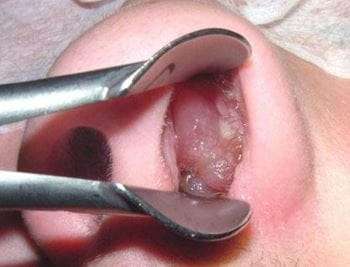Title: Understanding Nasal Polyps: Signs, Symptoms, Causes, Risk Factors, Diagnosis, Prevention, Diet, Lifestyle, and Homoeopathic Treatment
Introduction:
Nasal polyps are noncancerous growths that develop in the lining of the nasal passages or sinuses. They can cause nasal congestion, breathing difficulties, and other uncomfortable symptoms. Understanding the signs, symptoms, causes, risk factors, diagnosis methods, prevention strategies, diet and lifestyle considerations, and the potential role of homoeopathic treatment is crucial for effectively managing nasal polyps. In this blog post, we will delve into the key aspects of nasal polyps and explore their holistic approach to treatment.
Signs and Symptoms of Nasal Polyps:
1. Nasal congestion: Persistent stuffiness or blockage in the nose.
2. Runny nose: Chronic nasal discharge that may be watery or thick.
3. Reduced sense of smell: Decreased ability to detect smells or loss of smell altogether.
4. Facial pain or pressure: Discomfort in the face or around the eyes.
5. Sinus headaches: Recurrent headaches associated with sinus inflammation.
6. Snoring or sleep apnea: Obstructed airflow during sleep leading to snoring or pauses in breathing.
Common Causes of Nasal Polyps:
1. Chronic inflammation: Conditions such as allergies, asthma, or recurring sinus infections can trigger chronic inflammation, leading to the development of nasal polyps.
2. Nasal mucosal swelling: Swelling and irritation of the nasal mucosa can contribute to polyp formation.
3. Genetic factors: Some individuals may have a genetic predisposition to developing nasal polyps.
4. Aspirin sensitivity: Certain individuals with asthma may develop nasal polyps as a reaction to aspirin or nonsteroidal anti-inflammatory drugs (NSAIDs).
Risk Factors for Nasal Polyps:
1. Allergies and asthma: Individuals with a history of allergies or asthma are at an increased risk of developing nasal polyps.
2. Chronic sinusitis: Recurring or persistent sinus infections can lead to the formation of polyps.
3. Age and gender: Nasal polyps are more common in adults and tend to affect men more than women.
4. Family history: Having a family member with nasal polyps increases the likelihood of developing them.
Diagnosis of Nasal Polyps:
Nasal polyps can be diagnosed through various methods, including:
1. Physical examination: A healthcare professional will examine the nasal passages using a nasal speculum or endoscope.
2. Nasal endoscopy: A thin, flexible tube with a camera (endoscope) is inserted into the nose to visualize the polyps and assess their size and location.
3. Imaging tests: CT scans or MRI scans may be performed to provide detailed images of the nasal passages and sinuses.
Prevention, Diet, and Lifestyle Considerations:
1. Avoid triggers: Identify and avoid allergens or irritants that may trigger nasal inflammation, such as dust mites, pet dander, or certain chemicals.
2. Manage allergies and asthma: Work with healthcare professionals to effectively control allergies and asthma to reduce the risk of nasal polyps.
3. Maintain nasal hygiene: Regularly rinse the nasal passages with saline solution to keep them clean and moisturized.
4. Humidify the air: Use a humidifier to add moisture to the air, especially in dry environments.
5. Healthy diet and lifestyle: Consume a balanced diet rich in fruits, vegetables, whole grains, and lean proteins. Maintain a healthy weight and avoid smoking.
Homoeopathic Treatment for Nasal Polyps:
Homoeopathic treatment for nasal polyps aims to address the underlying causes, reduce inflammation, shrink polyp size, and alleviate associated symptoms. Some commonly used homoeopathic
remedies for nasal polyps include:
1. Lemna minor: Indicated for nasal polyps with nasal congestion, loss of smell, and post-nasal drip.
2. Teucrium marum verum: Useful for polyps with nasal obstruction, excessive discharge, and loss of smell.
3. Calcarea carbonica: Recommended for polyps associated with chronic nasal congestion and thick nasal discharge.
Consultation with a qualified homoeopathic practitioner is important for accurate diagnosis, personalized treatment plans, and monitoring of progress.
Conclusion:
Nasal polyps can cause significant discomfort and affect quality of life. By understanding the signs, symptoms, causes, risk factors, prevention strategies, diet and lifestyle considerations, and considering homoeopathic treatment as a complementary approach, individuals can effectively manage nasal polyps and promote nasal health. Always consult healthcare professionals for an accurate diagnosis and to create a comprehensive treatment plan tailored to your specific needs.

Leave a Message